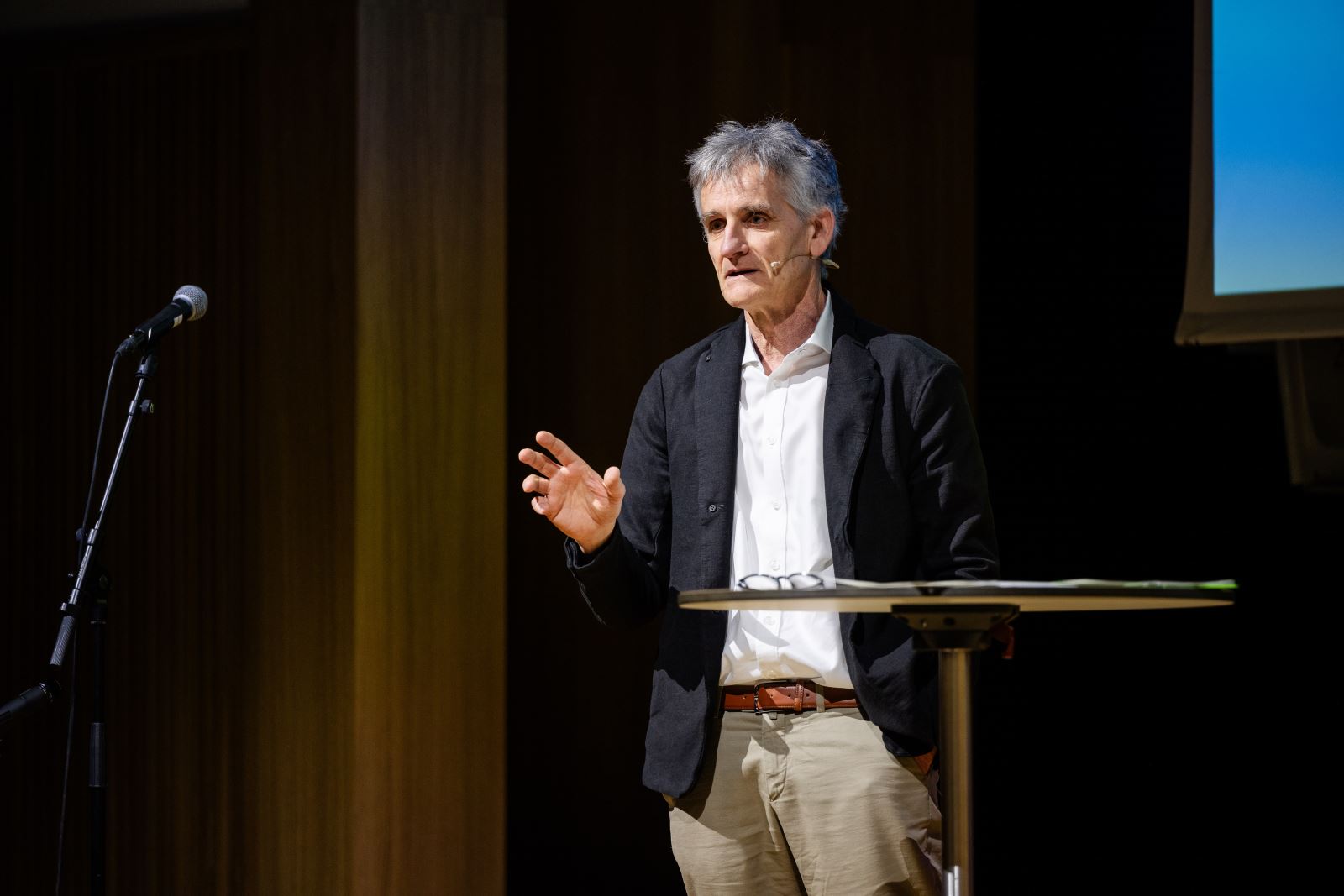Development cooperation - media article in German, April 14

This article in German appeareded in Liechtenstein's only daily newspaper "Liechtensteiner Vaterland", April 14, 2025
text translated by Deepl (free version)
Development cooperation is facing major challenges internationally: In many countries, funding is being cut or even completely eliminated. The dissolution of the United States Agency for International Development (USAID) by the Trump administration was a major turning point. However, these developments are not only having an impact on development work itself: “Aid bashing is leaving its mark on the population's perception,” says Co-Director of ETH Nadel Fritz Brugger. Nadel is a program of the Swiss Federal Institute of Technology (ETH) that conducts research into global cooperation and sustainable development. Fritz Brugger spoke about the latest study at a presentation during the event to mark the 60th anniversary of the Liechtenstein Development Service (LED).
In this study, the research team from ETH Nadel surveyed the Swiss population on development work. This showed that support for increasing development funding has continued to decline since the study began in 2021. But how does the LED perceive the support of the population in Liechtenstein?
Liechtenstein is bucking the negative trend
However, the study by ETH Nadel also shows that support for maintaining current contributions in Switzerland is growing, while the desire to reduce development funding has not increased. Andreas Sicks, Managing Director of the LED, assesses these results as follows: "This means that at least stable expenditure in this area appears to be a good thing.
Andreas Sicks, Managing Director of the LED, assesses these results as follows: "So at least stable spending in this area seems to be a wish of the population.” In Liechtenstein, the population's expectations could be roughly the same: “It is possible that the proportion of those in favor of an increase is even higher in Liechtenstein, as development cooperation is not as controversial in the political camps as it is in Switzerland,” says Andreas Sicks. The government's strong support for development work in recent years is also a positive signal to the population.
In contrast to Switzerland: on Wednesday, the Federal Council cut its contribution to the United Nations Development Program (UNDP) by around 13 million francs. In Liechtenstein, the funds allocated by Parliament and the government for the development service have increased in recent years: in 2023, Liechtenstein spent 25.6 million Swiss francs on international humanitarian cooperation and development. Contributions were increased again last year. Despite the good support in the country, the LED is also feeling the effects of the cuts by other countries, particularly the discontinuation of USAID: “Some of the LED partner organizations were also affected by the cuts and in some cases had to lay off numerous employees who worked on USAID-funded projects.”
However, development work in Switzerland faces another problem: “Due to the discussion about development cooperation, which is often underpinned by sweeping judgments, there is a tendency to significantly overestimate per capita expenditure,” says Sicks, commenting on the results of the study. Around 80 percent of Swiss people overestimate development cooperation spending by a factor of two to eight. However, when the actual expenditure is explained, “understanding and approval usually increases significantly”, says Sicks. This misjudgement has a direct impact on the discussion about increasing or reducing development spending: “The supposed need to cut spending is put into perspective when a realistic assessment of spending is made,” says the LED Managing Director.
However, we can only speculate about the knowledge and perception of the Liechtenstein population. “We are still trying to raise public awareness and make them aware of our work,” says Andreas Sicks. No decisions have yet been made regarding the implementation of such a study in Liechtenstein. However, the LED and political decision-makers will address this issue in the coming months.
Hier you can read die original text, author Sina Thöny
